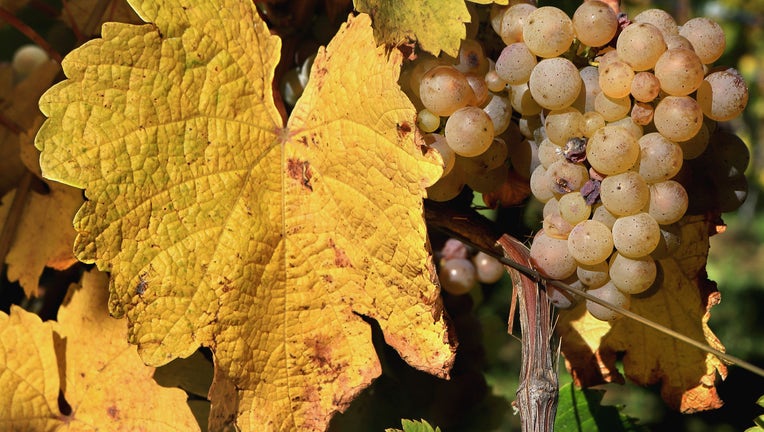Warm winter means no ice wine from Germany for the first time in years

RIQUEWIHR, FRANCE - OCTOBER 11: A Riesling vine has taken on its Autumn colors during the harvest in Famille Hugel winery's Schoenenbourg "Grossi Laue" Grand Cru vineyard on October 11, 2019 in Riquewihr, in the Alsace region of eastern France. Alsac
FRANKFURT, Germany - A warm winter means that for the first time in years Germany's vineyards will produce no ice wine -- a pricey, golden nectar made from grapes that have been left to freeze on the vine.
The German Wine Institute said Sunday that none of the country's wine regions saw the necessary low temperature of minus 7 degrees Celsius, or 19 degrees Fahrenheit.
A succession of warm winters have cut into ice wine production recently, the institute said, noting that in 2017 only seven producers managed to make it, and only five managed it in 2013. The institute, the wine industry's marketing arm, didn't say how far back records went.
"If warm winters become more frequent over the coming years, ice wines from Germany's regions will will soon became an even more expensive rarity than they already are," said wine institute spokesman Ernst Buescher
Freezing the grapes before they are crushed concentrates the sugar and leads to an intensely sweet, golden wine often served with dessert. It has always been an niche product with around 0.1% of German production, and expensive due to low volumes.
Making it is a tricky business that can enhance the winemaker's reputation. Workers must race into the vineyards to bring the grapes in with only a few hours notice when the temperature falls, often at night or in the early morning. Since the grapes must be pressed while still frozen, makers labor in unheated facilities. Vineyard owners also face the risk that grapes set aside for ice wine will rot on the vine before the hard freeze comes.
Canada's Niagara Peninsula is one of several other places where ice wine is produced, thanks to its cold winters. It's also made in northern Michigan and Ashtabula County, Ohio near Lake Erie. Major markets for German ice wine include Japan and China as well as Scandinavia and the US, the institute said.

